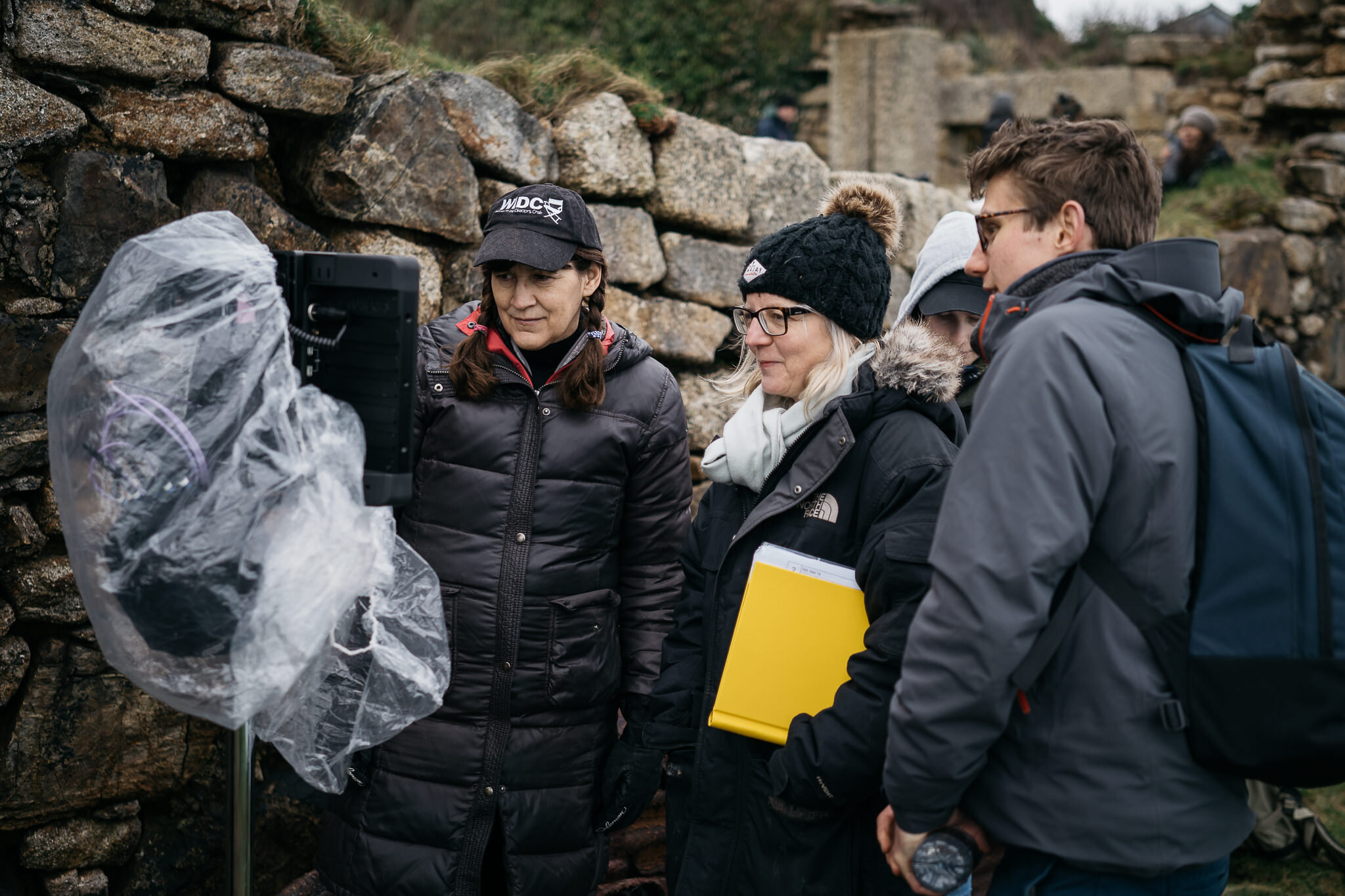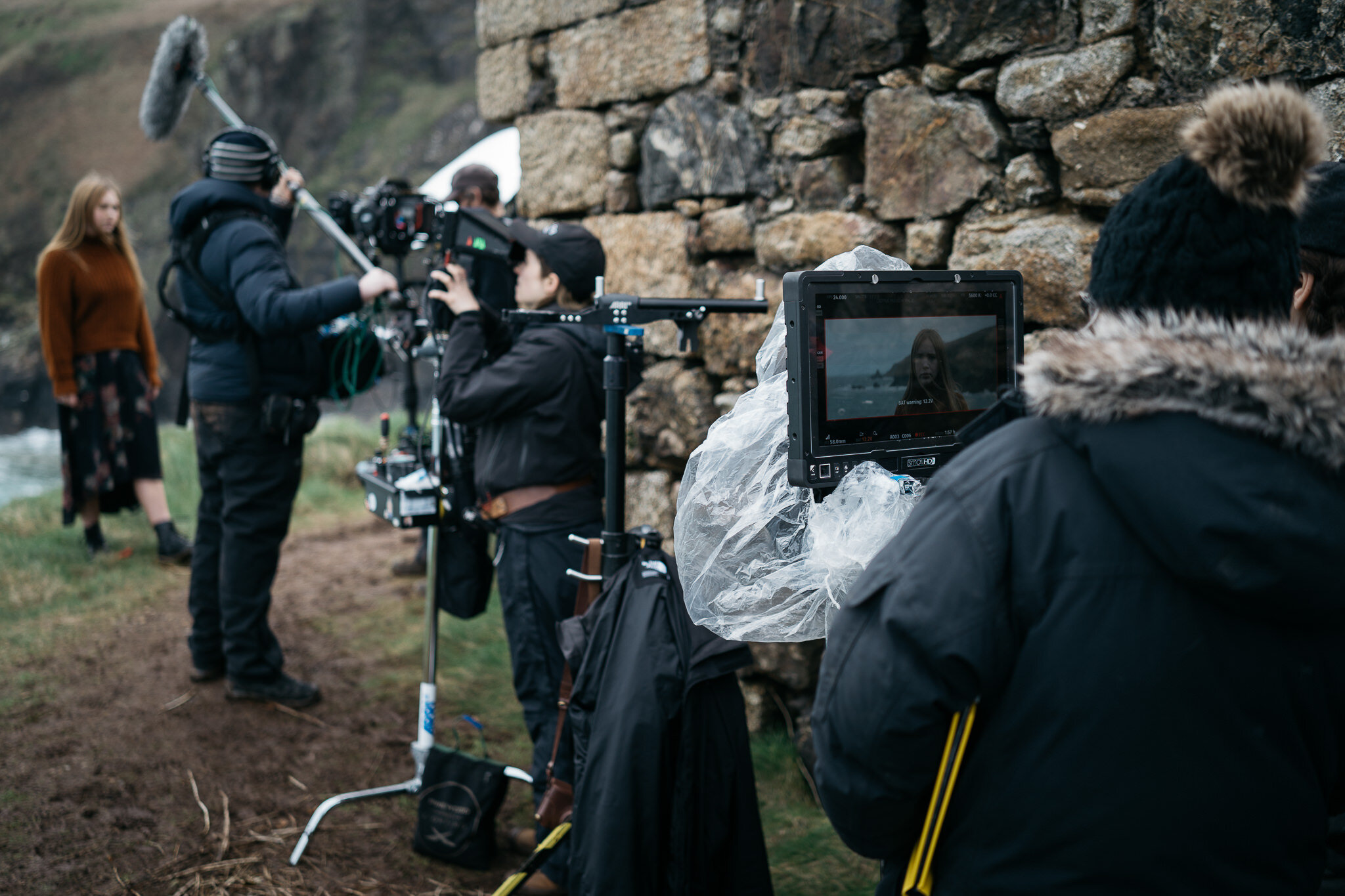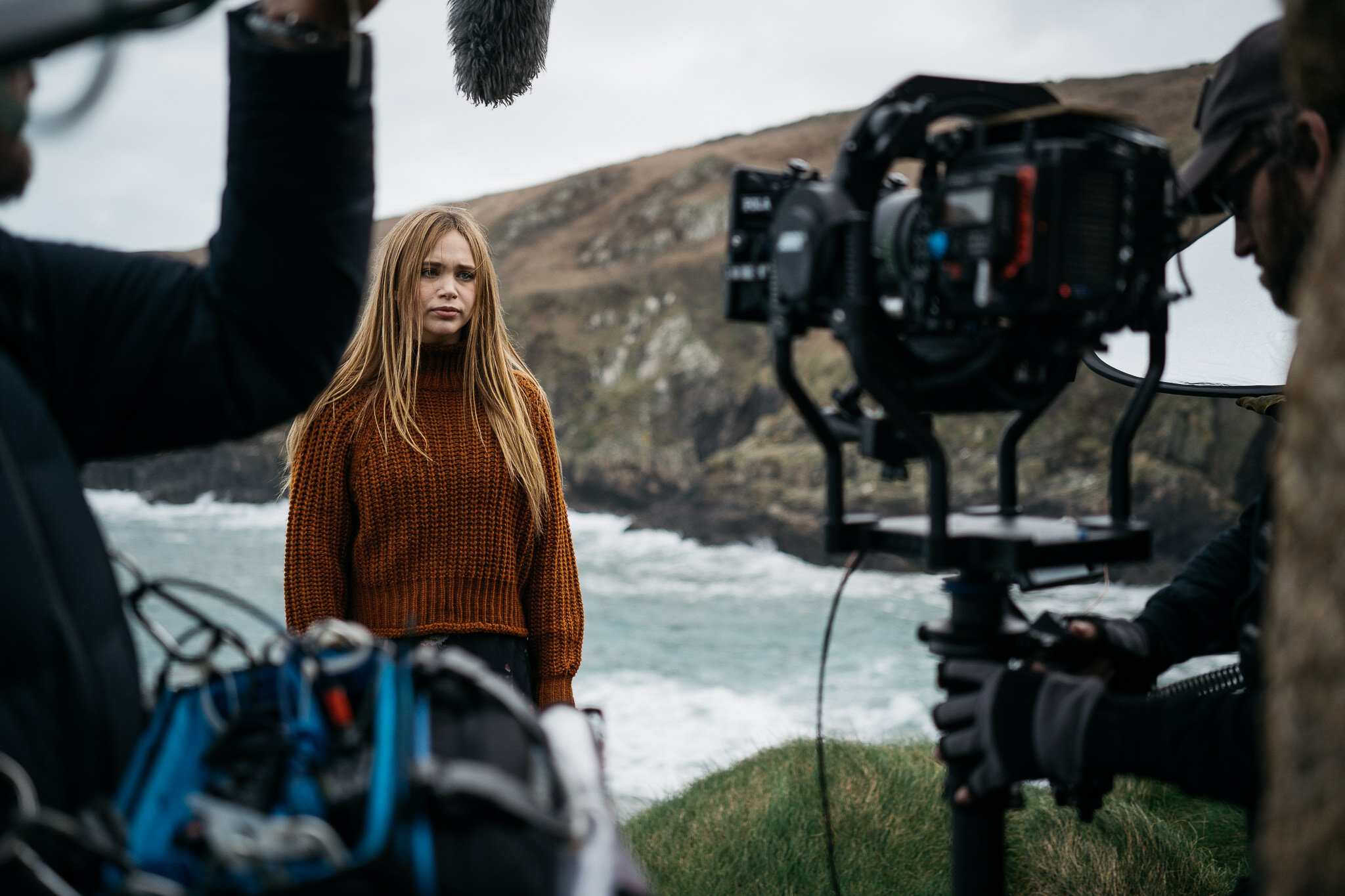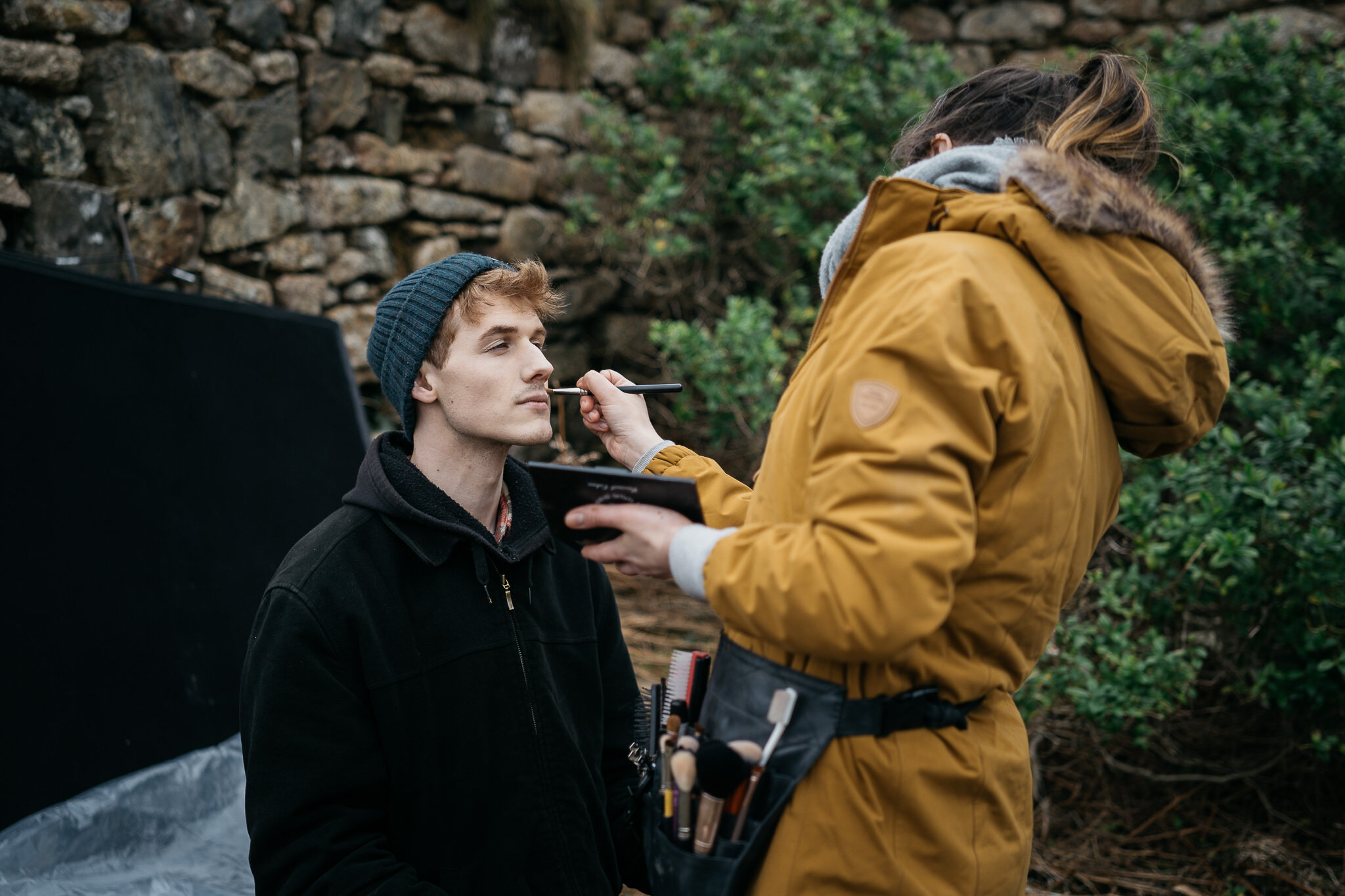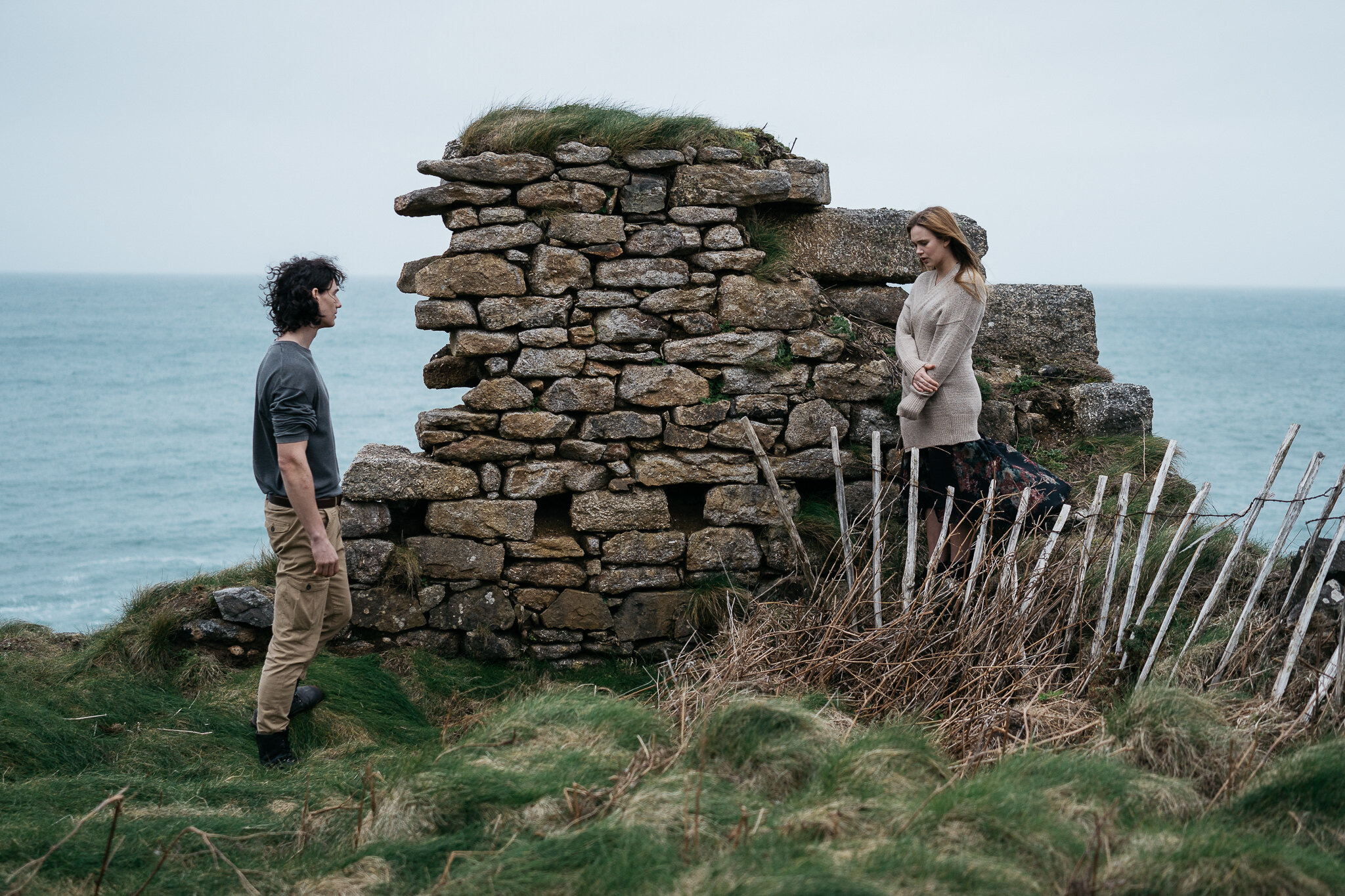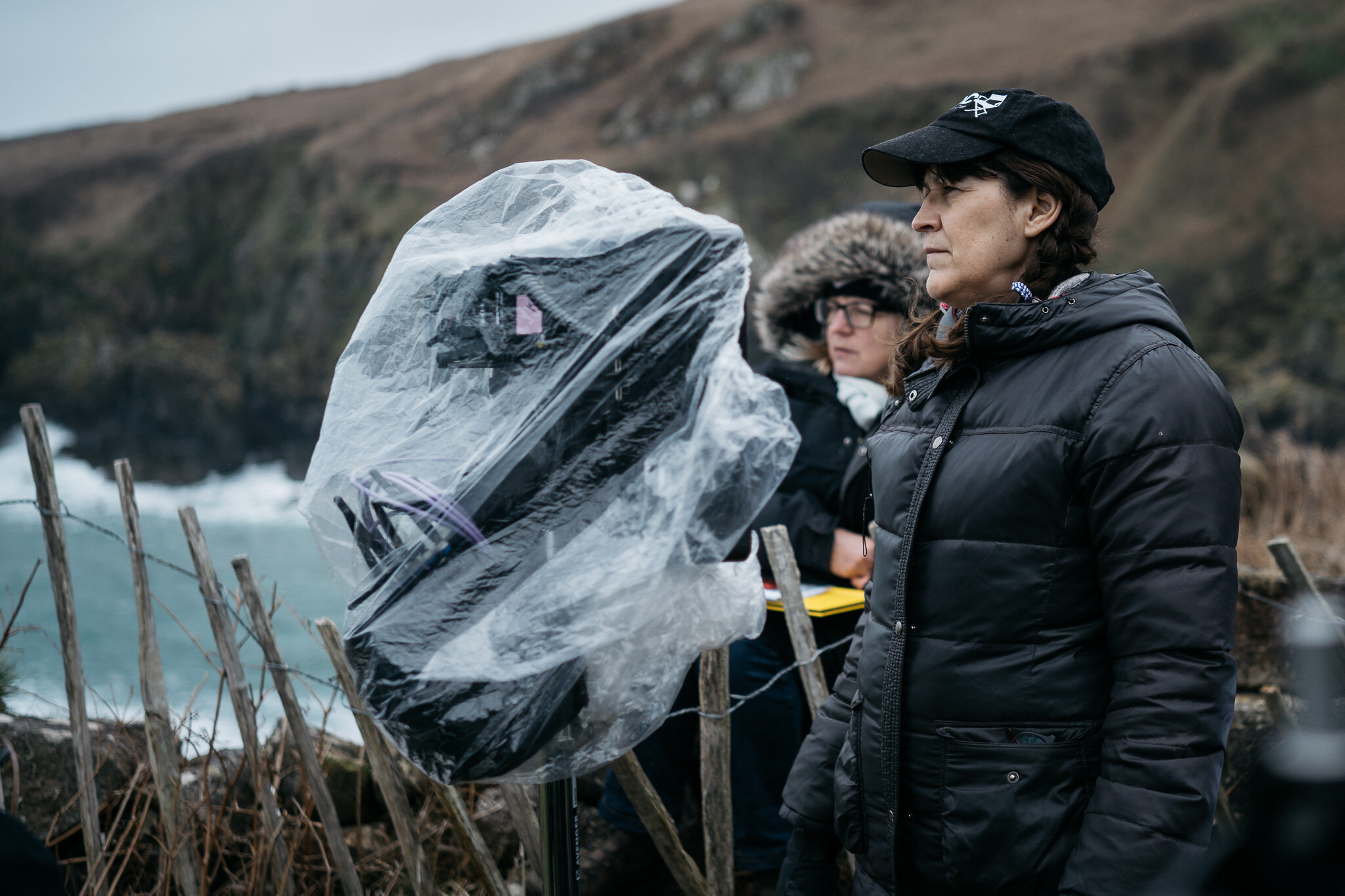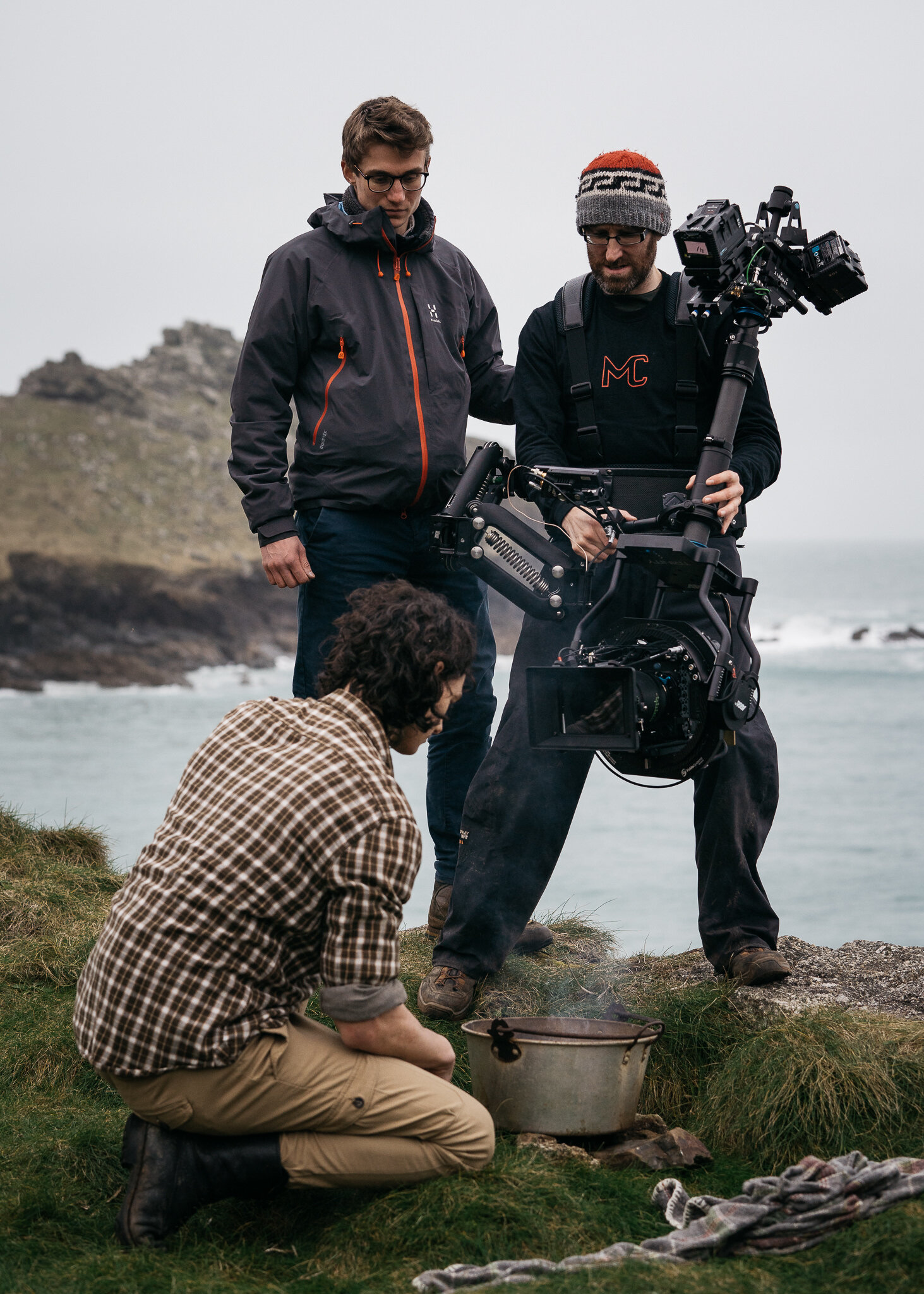This month, writer-director Carolyn Saunders shares her experiences of making the most of her high-end ARRI camera in Cornwall’s beautiful landscape.
Carolyn’s feature film ISLAND WEST is in development, a dystopian near-future world after catastrophic flooding has turned Britain into an archipelago. “When I began the script, I wanted to extrapolate to their natural conclusion two of the worst problems I saw facing the UK – climate change flooding, and the kind of racism that makes people think it’s okay to let desperate people die in boats on the open water. Island West is part of the archipelago, but it’s fighting to stay isolated, because reconnection to the mainland will bring migrants. At its heart, it’s a coming-of-age story that challenges whether we are condemned to be the people we are raised to be, or if we can somehow break free, given the knowledge of another way and the courage to go. This is hugely important to me, because I’m kind of a warrior for truth, and I’m horrified when I see the lies that people grow up with and how it can shape them into monsters.”
When Directors UK announced that freedom was the theme of its 2020 Challenge Alexa competition, she saw an opportunity to spend time digging deeper into the notion of freedom within the world that she’d built, and wrote a short script that explores the cost of freedom for both her main characters.
“I knew it would be really competitive, so I nearly fell out of my chair when I won. ARRI gave us the most incredible camera package to shoot with - the same package used on the feature film 1917 – as well as lighting kit, insurance and a small bursary.” They chose Cornwall because the entire landscape/seascape screams cinematic: “The locations needed to do justice to our fabulous camera. The island is very much a character in this film and I wanted to exploit all the drama and fierceness of the Cornish coast.”
With the ambition for the film meaning more funding was needed, a number of local Cornwall businesses stepped in as sponsors with cash or service and a crowdfunding campaign was launched. Carolyn commented: “Winning Challenge Alexa gave us a credibility that helped enormously, and I cannot thank the local business community enough for getting behind us. We were also lucky to have Trewarthenick, an estate near Tregony, support us which was a real gamechanger that made the film possible.”
The shoot took place in the final weekend before lockdown #1 and a crew of predominantly Cornwall-based craft and technical talent was brought together, including DOP Mary Farbrother and Production Designer Rowena Zoro, 1st AD Jonny Dry, drone company Bad Wolf Horizon and a couple of students from Falmouth University. Despite the challenges of time (with COVID looming), money and weather, Carolyn was really happy with the results: “They were just such a lovely and talented team, with all the creativity and can-do attitude you need on a project like this.” The film has now been through post-production in London and is now entering festivals.
When asked to pick a favourite moment of her time in Cornwall, she didn’t hesitate: “Our main location of Lean Point, near Gurnard’s Head, had everything we needed in terms of look – a ruin on a cliff overlooking a perilous and rocky sea, without any sign of civilization in sight. Spectacular, but also tricky in that we had to schlep our gear down a goatpath to reach it, buffeted by wind and trying not to wipe out in the muck. Luckily, a friendly neighbour was kind enough to offer a lift partway on his ATV, and another let us stage in their driveway halfway up the hill. The Gurnards Head pub at the top brought lunch down to us and I will never in my life forget sitting on that cliff with the wind in my hair eating this amazing spread and watching the waves crash.”
And as for tips for others considering shooting in Cornwall, Carolyn suggests finding a local fixer who is as passionate about the project as you are – they worked with the fantastic Amanda White who not only helped secure location permissions and sponsorship but also provided dry socks when needed! She also advises using the beautiful landscape “to the max. Explore a bit and make a film that is yours and not something you’ve already seen on screen in Poldark. Location is everything on a film and, if you’re in Cornwall, you’re already halfway to glory.”
